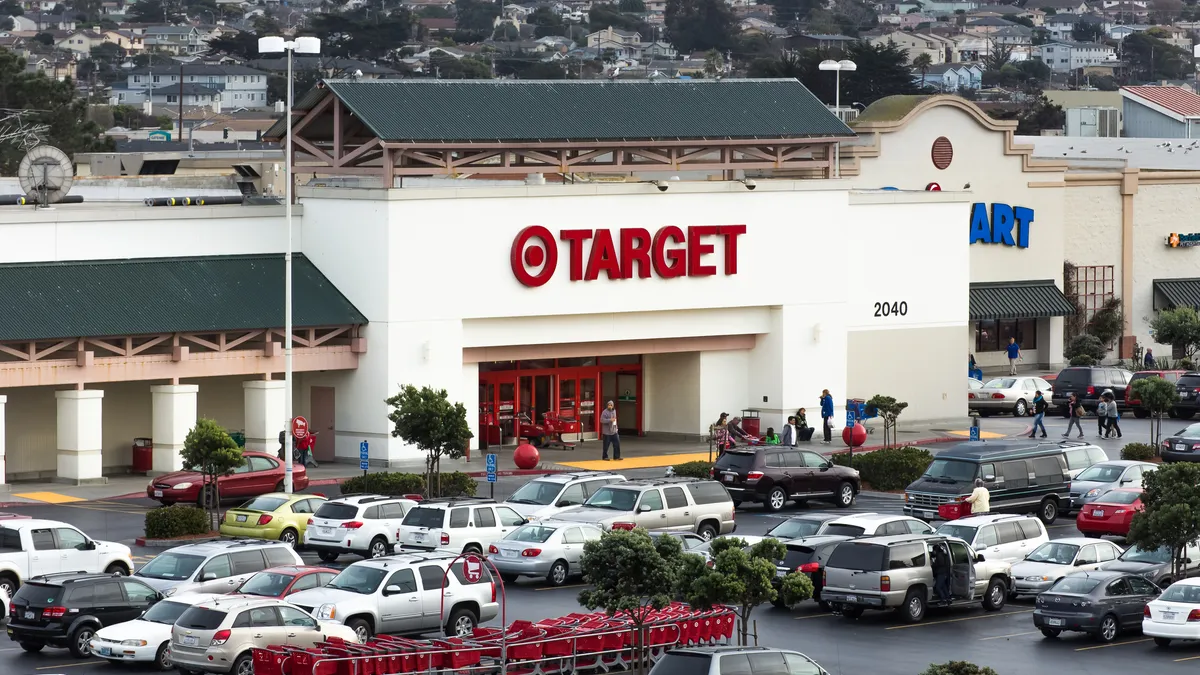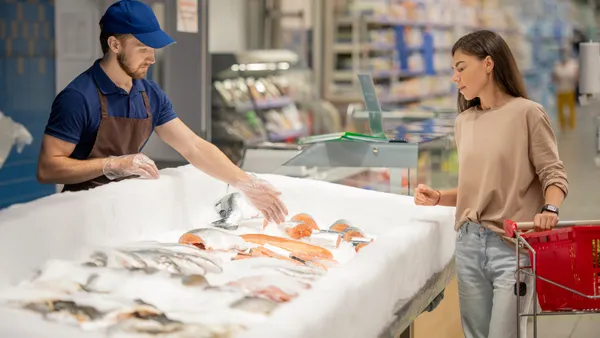Dive Brief:
- As concerns mount about the COVID-19 outbreak in the U.S., Target CEO Brian Cornell said in an open letter to customers that his company was adding hours to store payrolls to make cleaning routines "even more rigorous."
- Specifically, Cornell said checkout lanes and touchscreens would be cleaned at least every 30 minutes. The retailer is also nixing food samples at stores. In addition, as consumers stockpile certain supplies, Cornell said the company would limit the number of "key items" available per purchase.
- Walmart also addressed sanitation, telling customers it had plans for third-party sanitization for stores affected by the coronavirus, and may adjust store hours to allow for more cleaning. After a store worker in Kentucky tested positive for COVID-19, Walmart also created a COVID-19 emergency leave plan, which includes waiving attendance policies through the end of April.
Dive Insight:
As COVID-19, a disease caused by a member of the coronavirus family, spreads through the U.S., the impact on mass merchants like Target and Walmart could be mixed, as they face supply disruptions and wary consumers on the one hand, and stockpiling shoppers on the other.
As with natural disasters, mass merchants at the moment face a balancing act between safety and being a source of critical supplies to consumers. In opening his note to customers, Cornell said that "so many of you have been in our stores and on our website stocking up on all the essential things you need to keep your families healthy and safe."
In a call with analysts last week, Cornell said that his company has seen consumers "stock up on household essentials, disinfectants, food and beverage items, all those staple items that the CDC has recommended they add to their pantry." He added, "And certainly we've seen aggressive shopping across the country in our stores."
The public statements Target and Walmart made directly to consumers about cleaning routines is a clear sign that customers are worried about contracting the virus in those companies' stores. With consumers avoiding brick-and-mortar stores more generally, Cornell said Target is staffing up its order pick-up and drive-up services that have been "in demand."
Across the country, retailers are stepping up their food and store safety protocols, and then relaying those steps to shoppers. H-E-B, which operates more than 300 stores across Texas, said on its website it's cleaning store surfaces more frequently, offering hand sanitizer dispensers to shoppers and providing additional training for its employees.
In Seattle, where 22 residents have died due to COVID-19 exposure, PCC Community Markets laid out on its website and in an email to cooperative members a list of precautions it's taking. These include rotating its hot and cold bar utensils hourly and barring in-store sampling as well as the use of personal cups and mugs at store espresso bars. The company has also updated procedures for its popular in-store cooking classes, allowing only instructors that have gone through special safety training to handle ready-to-eat foods.
Meanwhile, as consumers try to avoid the virus, malls and mall retailers could be at risk. In a client note Tuesday, Jeffries analysts said that "the public avoiding gathering places pressures mall traffic." That in turn could lead to more store closures and prolong retail's recovery given "the highly discretionary spending (restaurants/apparel) taking place in malls and the availability of substitutes (e.g. online delivery for food & clothing)," the analysts added.
Jeff Wells contributed reporting to this story.














